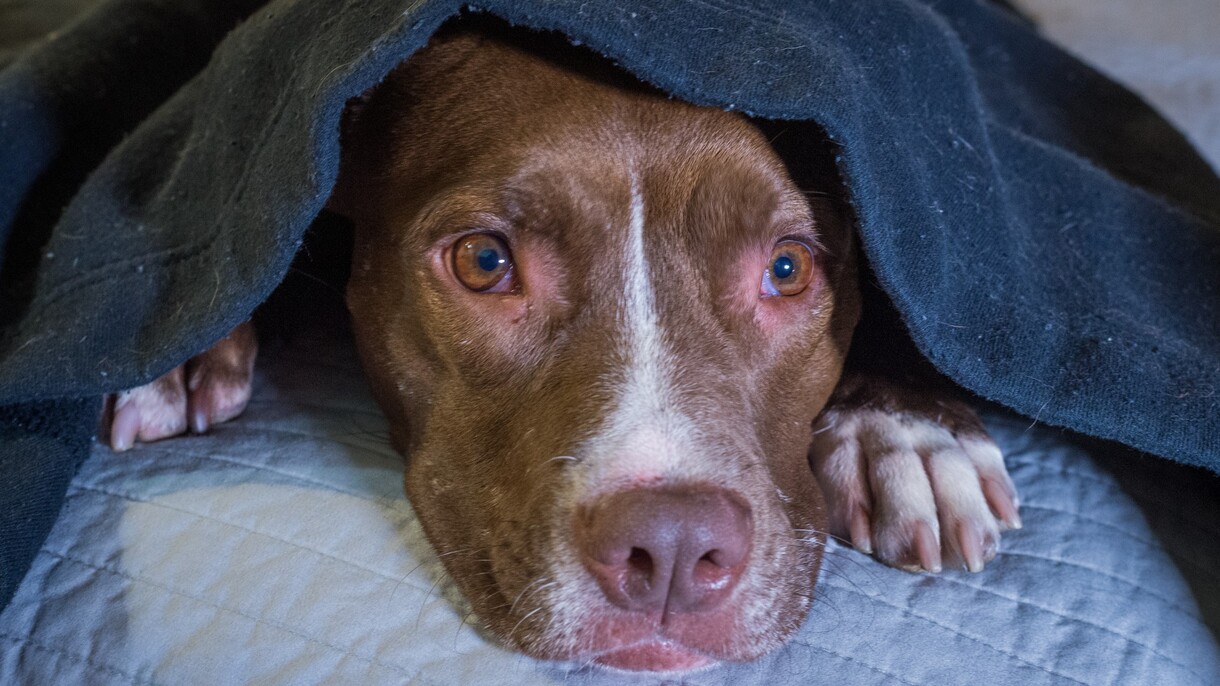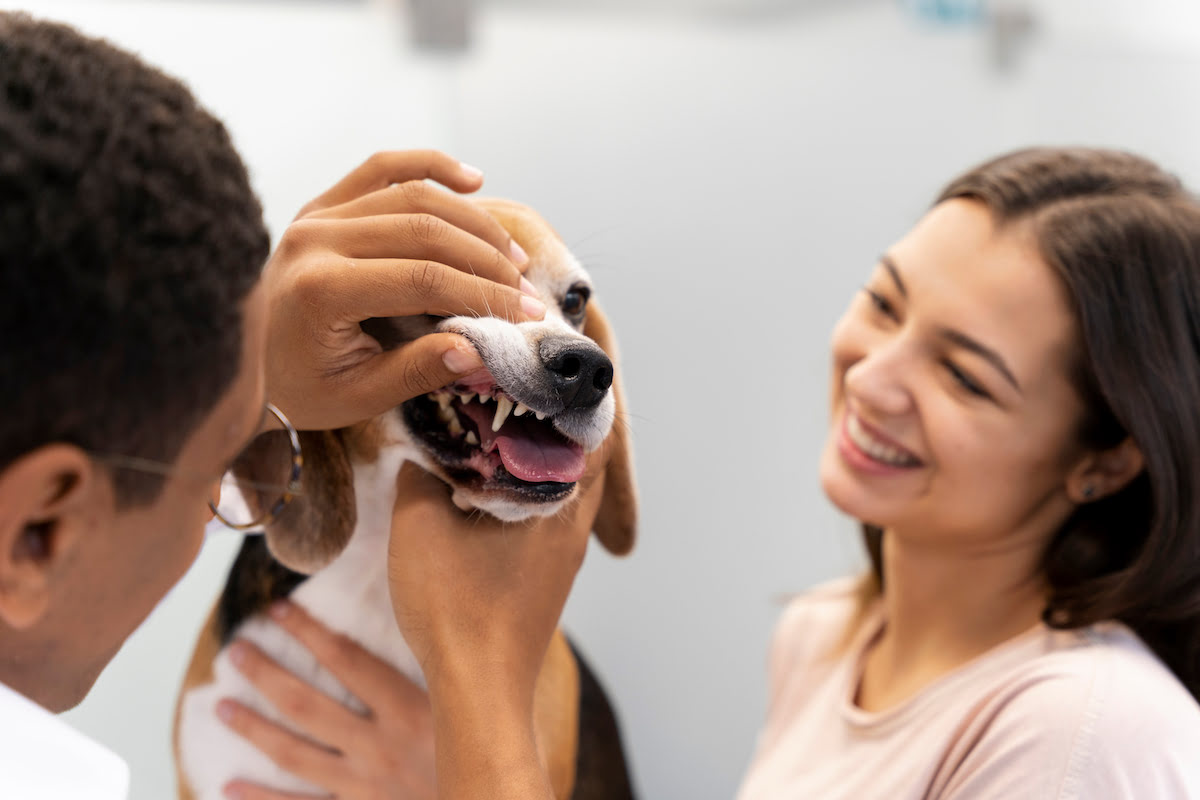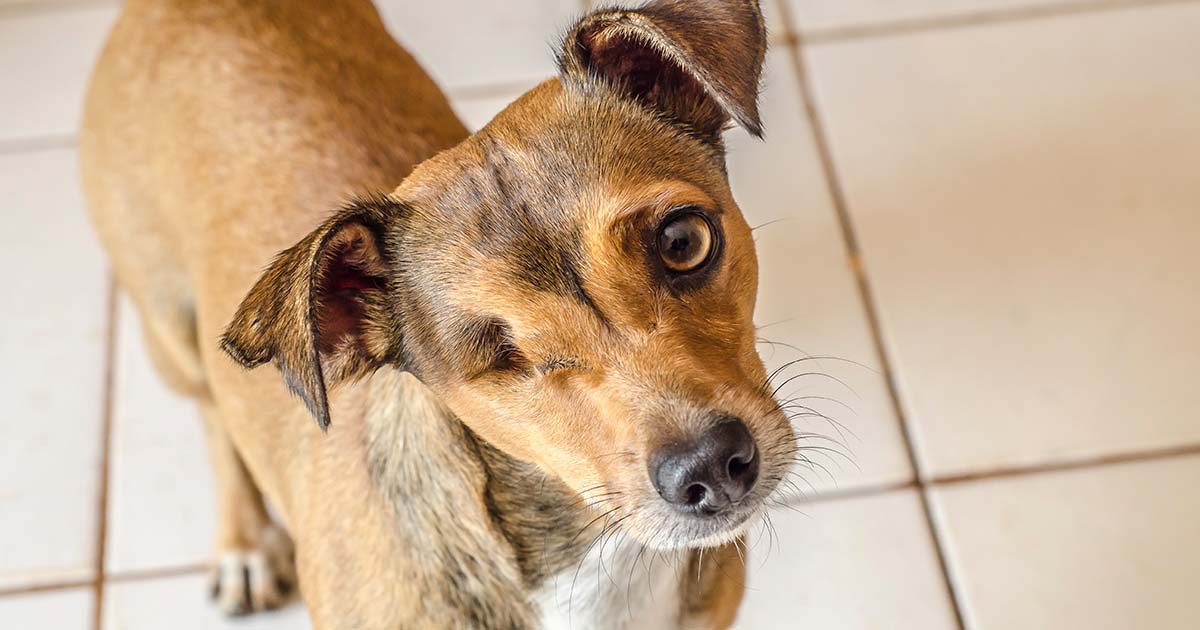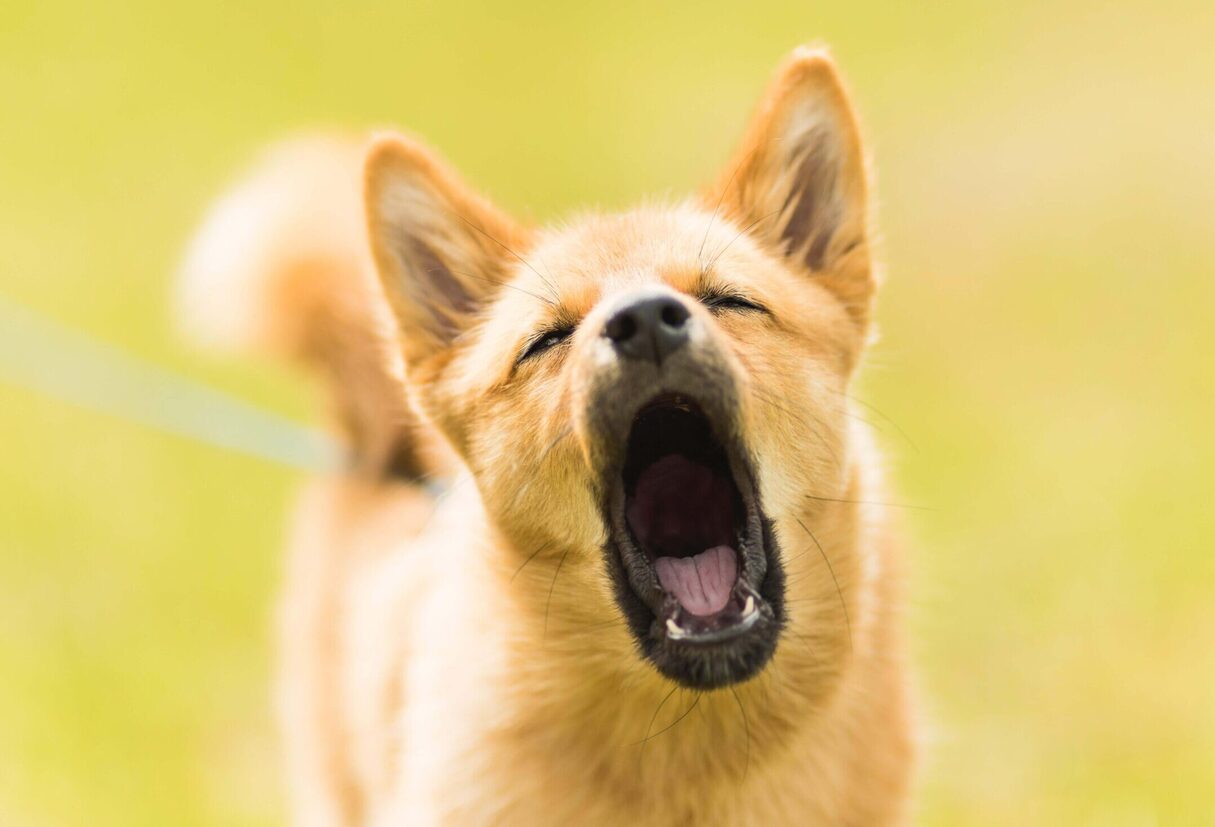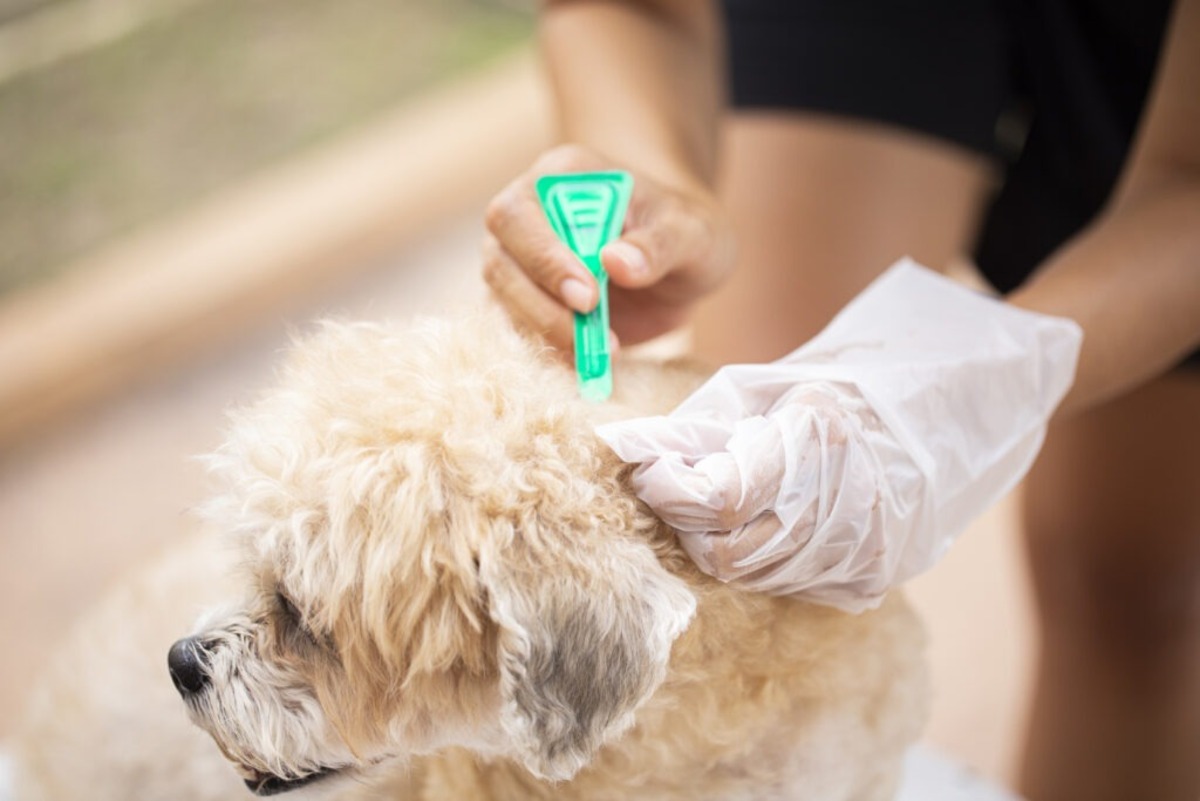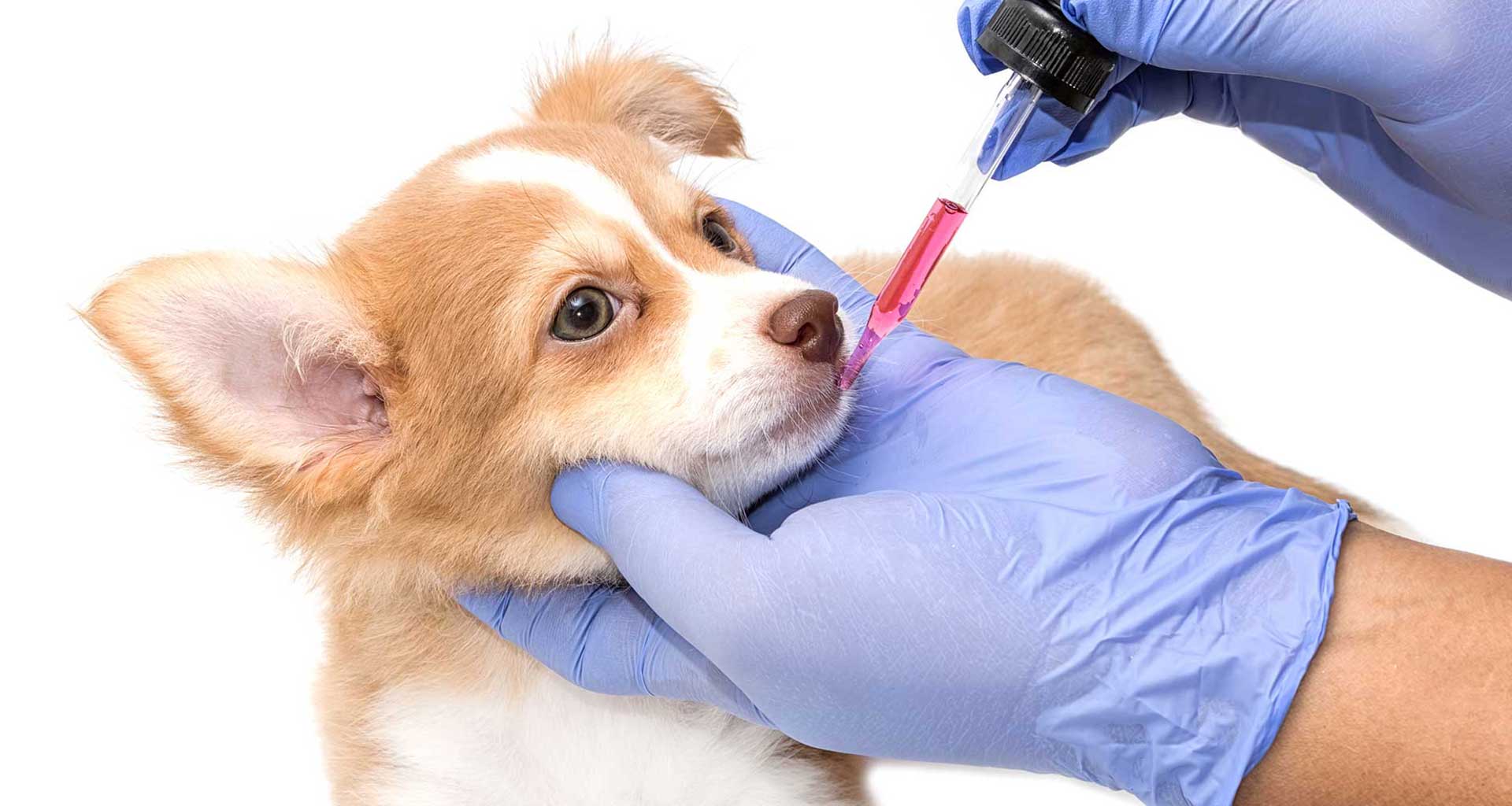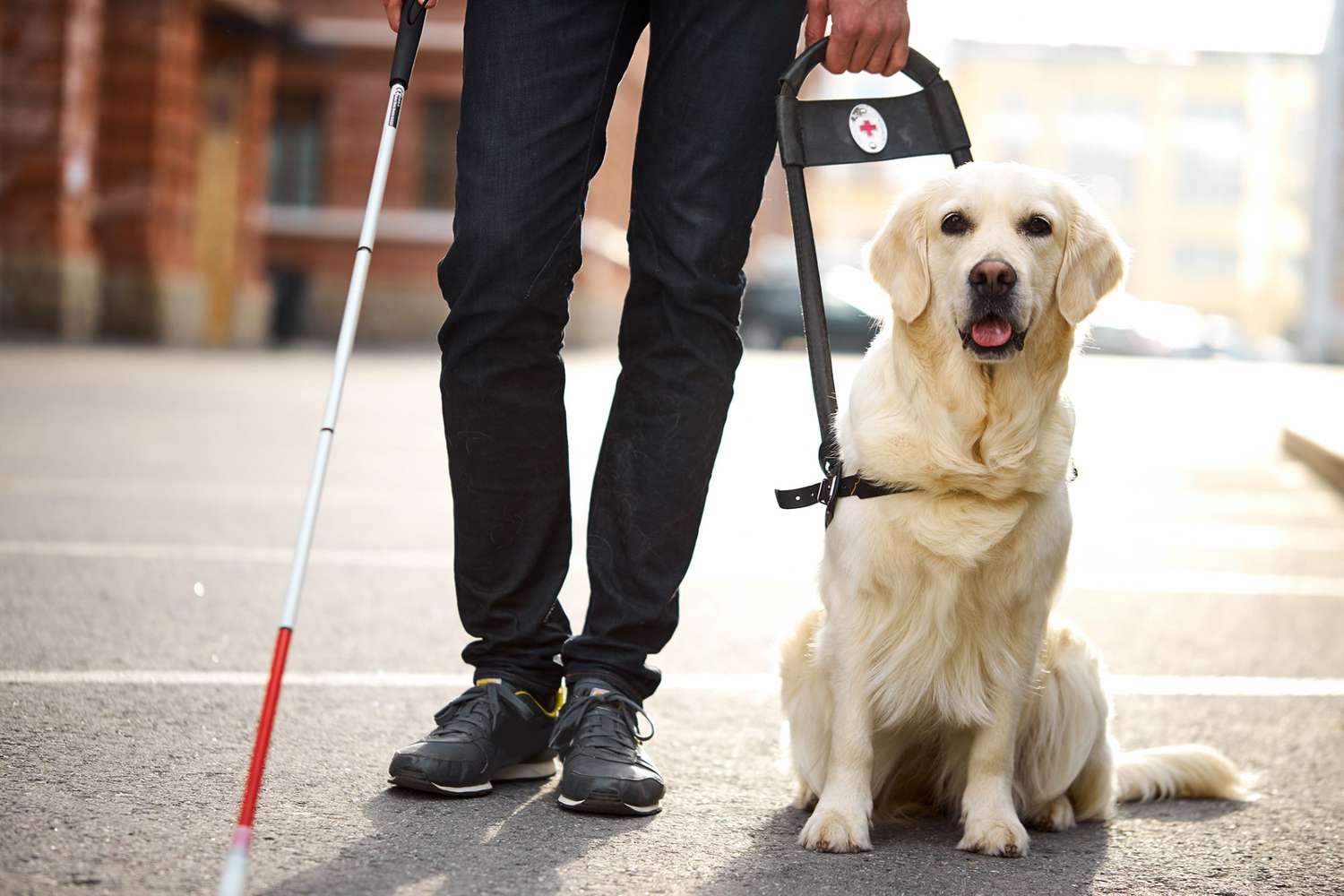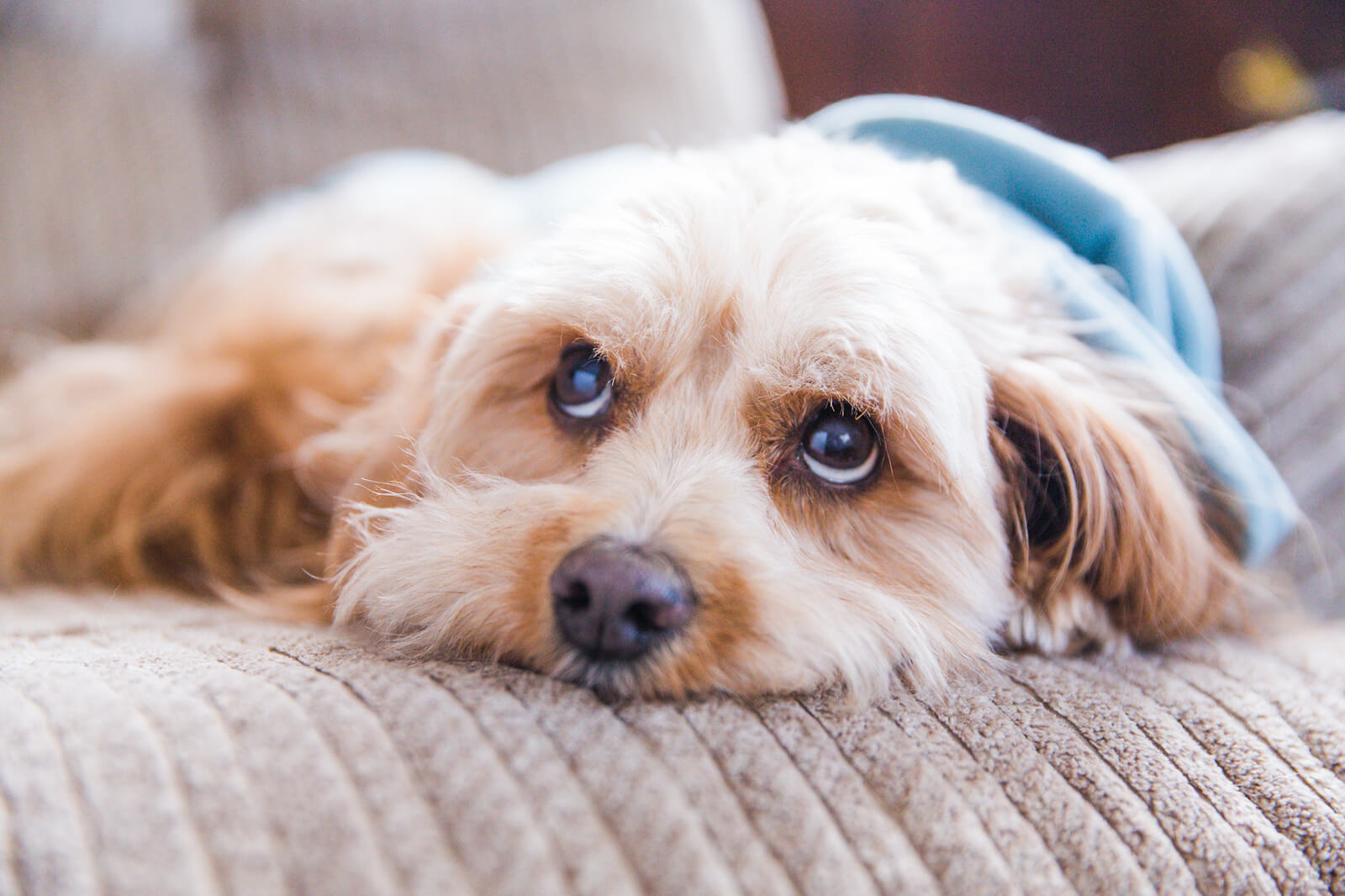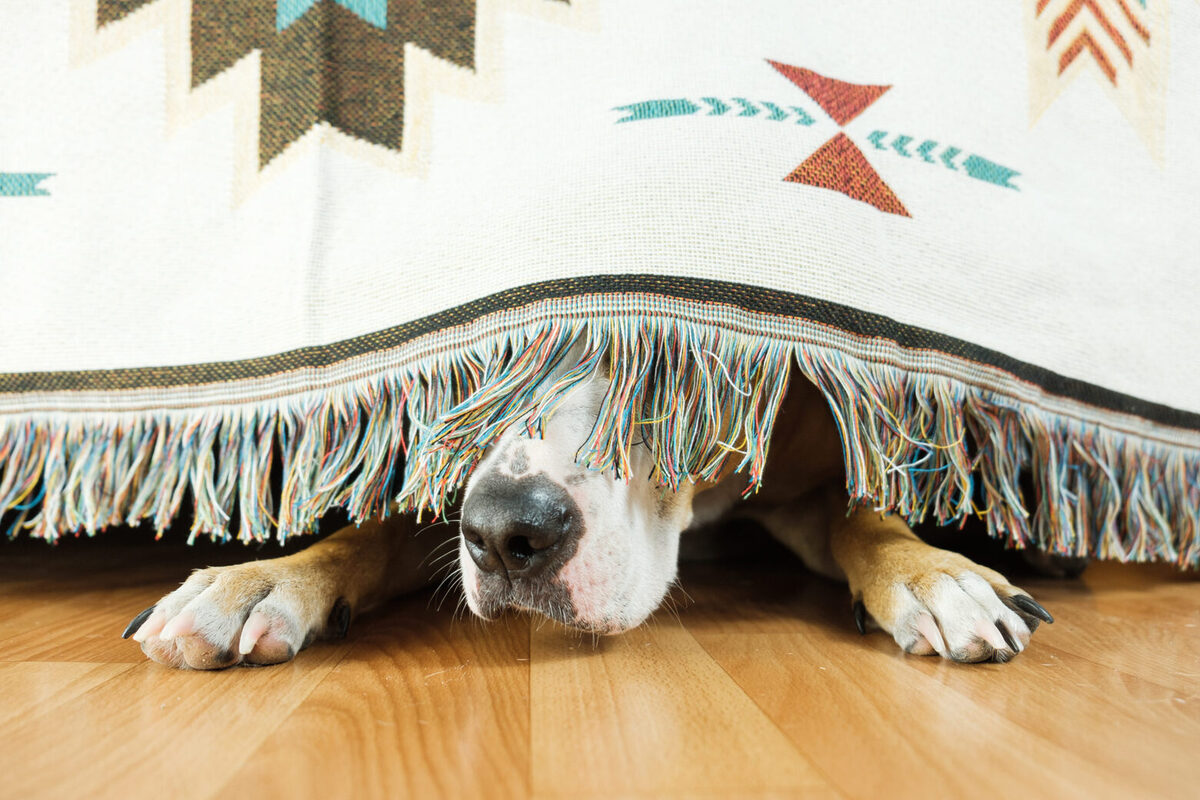Home>Health & Wellness>Behavior & Cognitive Care>How To Reduce Dog Anxiety After Companion’s Death
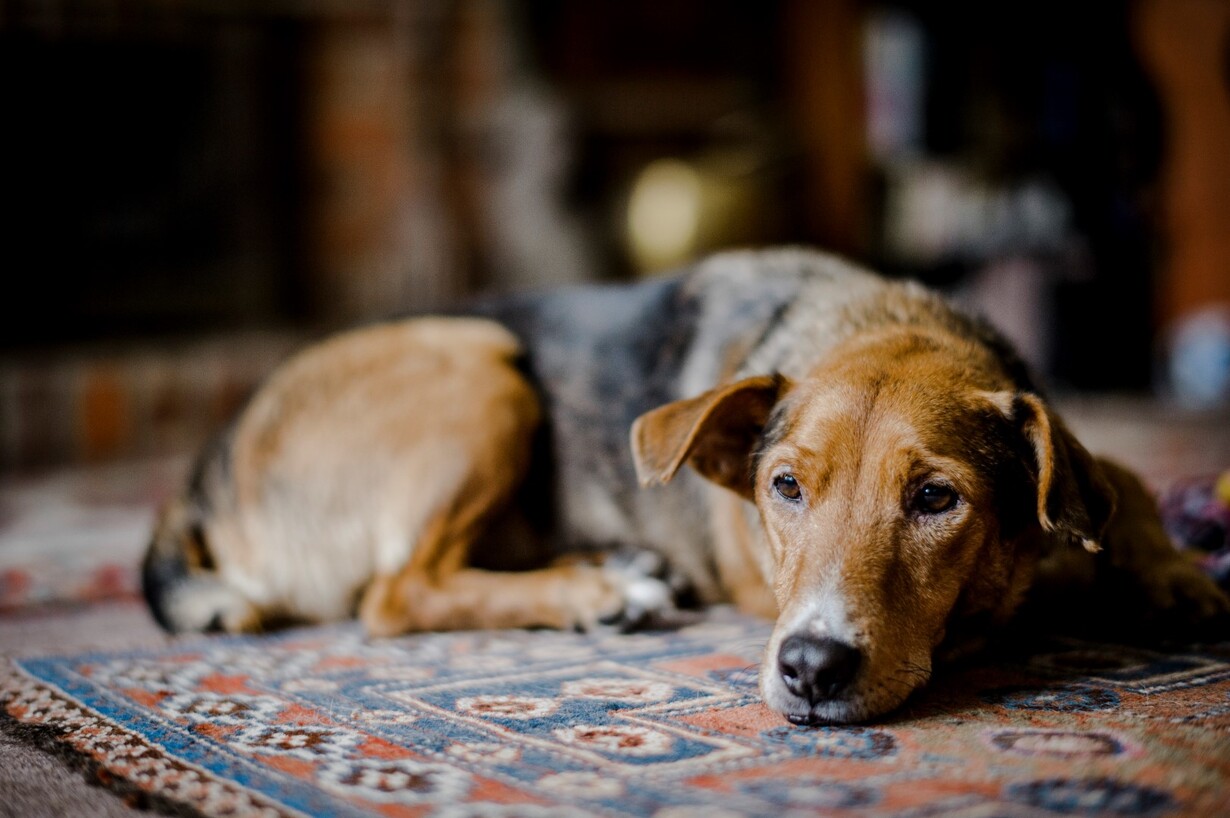

Behavior & Cognitive Care
How To Reduce Dog Anxiety After Companion’s Death
Published: January 29, 2024
Learn effective strategies to reduce dog anxiety after the loss of a companion. Discover behavior and cognitive care techniques to help your pet cope with grief.
(Many of the links in this article redirect to a specific reviewed product. Your purchase of these products through affiliate links helps to generate commission for Pawsomeoldies.com, at no extra cost. Learn more)
Table of Contents
Introduction
Losing a companion is a deeply emotional experience for anyone, and this sentiment extends to our canine friends as well. Dogs form strong bonds with their companions, whether they are humans or other animals. When a beloved companion passes away, dogs can experience a range of emotions, including grief and anxiety. As responsible pet owners, it's essential for us to recognize and address these emotions in our furry friends.
Just like humans, dogs can exhibit signs of anxiety and distress after the loss of a companion. These signs may manifest in various ways, such as changes in behavior, appetite, or energy levels. It's crucial for dog owners to be attentive to these signs and provide the necessary support to help their pets navigate through this challenging period.
In this article, we will delve into the intricate world of dog anxiety after the death of a companion. We will explore the behavioral and emotional aspects of this experience, shedding light on the signs that indicate a dog's distress. Additionally, we will provide practical strategies and tips to help dog owners alleviate their pet's anxiety and create a comforting environment for them.
Understanding and addressing dog anxiety after the loss of a companion is a crucial aspect of responsible pet ownership. By gaining insights into their emotional needs and providing the necessary support, we can help our canine companions cope with their grief and anxiety in a healthy and nurturing manner. Let's embark on this journey of understanding and compassion to ensure the well-being of our beloved furry friends.
Read more: How Long Do Dogs Itch After Fleas?
Understanding Dog Anxiety After Companion's Death
Losing a companion can be a profoundly distressing experience for dogs, triggering a range of emotional responses that parallel human grief. Dogs form strong bonds with their companions, whether they are fellow canines, other pets, or humans. When a companion passes away, dogs may exhibit signs of anxiety, confusion, and distress as they navigate through the complex emotions associated with loss.
One of the key manifestations of dog anxiety after the death of a companion is a noticeable change in behavior. Dogs may become withdrawn, displaying a lack of interest in activities they once enjoyed. They might also exhibit signs of restlessness, pacing, or seeking out spaces that hold memories of their departed companion. Additionally, dogs may experience changes in their eating and sleeping patterns, further indicating their emotional turmoil.
It's important to recognize that dogs process grief and loss in their own unique way. While they may not express their emotions in the same manner as humans, their behavioral cues provide valuable insights into their emotional state. Understanding these cues is crucial for identifying and addressing their anxiety effectively.
Furthermore, the loss of a companion can disrupt the social dynamics within a multi-pet household, leading to potential conflicts and stress among the remaining pets. Dogs may experience separation anxiety, particularly if they were deeply bonded with the departed companion. This can result in heightened distress when separated from their human caregivers or other pets, intensifying their overall anxiety.
As responsible pet owners, it's essential to approach our grieving dogs with empathy and patience. By recognizing the signs of anxiety and distress, we can provide the necessary support to help them navigate through this challenging period. In the subsequent sections, we will explore practical strategies to create a comforting environment for our dogs and alleviate their anxiety after the loss of a companion.
Creating a Comforting Environment for Your Dog
Creating a comforting environment for your dog is paramount in helping them cope with the anxiety and distress following the loss of a companion. Dogs, like humans, seek solace and reassurance during times of emotional upheaval. By establishing a nurturing and supportive atmosphere, pet owners can significantly alleviate their dog's anxiety and facilitate the healing process.
Providing a Safe Haven
Designating a specific area within the home as a safe haven for your dog can offer a sense of security and stability. This area should be equipped with your dog's favorite bedding, toys, and comforting items that carry familiar scents. By creating a designated safe space, you provide your dog with a retreat where they can seek comfort and solace whenever they feel overwhelmed.
Maintaining Consistent Routines
Consistency and predictability can be immensely reassuring for dogs experiencing anxiety. Maintaining regular feeding times, exercise routines, and sleep schedules can instill a sense of stability and normalcy in their daily lives. Additionally, adhering to consistent mealtimes and exercise regimens can help regulate their emotional state and reduce feelings of uncertainty.
Utilizing Calming Aids
Incorporating calming aids such as pheromone diffusers, soothing music, or comforting scents can create a tranquil atmosphere for your dog. Pheromone diffusers emit synthetic pheromones that mimic those produced by nursing mother dogs, promoting a sense of security and relaxation. Similarly, playing soft, classical music can have a calming effect on dogs, reducing stress and anxiety levels.
Engaging in Gentle Affection
Offering gentle affection and reassurance to your dog is instrumental in creating a comforting environment. Spending quality time with your pet, engaging in soothing petting sessions, and using calming verbal cues can convey a sense of security and companionship. This reassurance reinforces the bond between you and your dog, fostering a supportive environment for them to navigate through their emotions.
Minimizing Exposure to Triggers
Identifying and minimizing exposure to potential triggers of anxiety is crucial in creating a comforting environment for your dog. This may involve reducing exposure to loud noises, unfamiliar environments, or situations that evoke distress. By minimizing exposure to triggers, you can help alleviate your dog's anxiety and create a more serene and reassuring atmosphere for them.
By implementing these strategies and creating a comforting environment for your dog, you can significantly mitigate their anxiety and facilitate their emotional healing process. Understanding the importance of a supportive environment and actively working towards providing one can make a profound difference in helping your dog cope with the loss of a companion.
Establishing a Routine and Providing Consistent Care
Consistency and predictability play a pivotal role in alleviating dog anxiety after the loss of a companion. Establishing a structured routine and providing unwavering care can offer a sense of stability and security to dogs during this emotionally tumultuous period.
Read more: How To Ease Anxiety In Dogs
Structured Daily Routine
Implementing a structured daily routine for your dog can instill a sense of predictability and normalcy, which is essential in mitigating anxiety. Consistent meal times, regular exercise sessions, and designated rest periods create a reliable framework that helps your dog feel secure and balanced. By adhering to a consistent schedule, you provide your dog with a dependable rhythm that minimizes uncertainty and reinforces a sense of stability.
Regular Exercise and Mental Stimulation
Engaging in regular exercise and mental stimulation is vital for promoting your dog's overall well-being and reducing anxiety. Physical activities such as brisk walks, interactive play sessions, and stimulating games not only help release pent-up energy but also stimulate the production of endorphins, which are natural mood enhancers. Additionally, incorporating mental enrichment activities such as puzzle toys, scent games, and obedience training can keep your dog's mind engaged, preventing feelings of restlessness and anxiety.
Nutritious and Consistent Meals
Maintaining a consistent feeding schedule with nutritious meals is crucial in providing physical and emotional nourishment to your dog. High-quality, balanced nutrition supports your dog's overall health and can positively impact their emotional state. By feeding your dog at the same times each day and ensuring a well-balanced diet, you reinforce a sense of routine and care, which can significantly contribute to their emotional well-being.
Unwavering Affection and Attention
Consistent care involves providing unwavering affection and attention to your dog. Showering them with love, praise, and gentle reassurance communicates a sense of security and support. Regular bonding activities, such as grooming sessions, cuddling, and interactive play, strengthen the emotional bond between you and your dog, fostering a nurturing environment that aids in alleviating anxiety.
Predictable Sleep Patterns
Establishing predictable sleep patterns is essential for promoting a sense of security and relaxation in dogs. Creating a comfortable and designated sleeping area for your dog, maintaining a consistent bedtime routine, and ensuring a peaceful sleep environment can help regulate their sleep patterns and reduce nighttime anxiety. Adequate rest is crucial for emotional regulation and overall well-being, making consistent sleep patterns an integral part of providing care and stability for your dog.
By prioritizing the establishment of a routine and providing consistent care, you can significantly contribute to your dog's emotional stability and well-being during this challenging time. Consistency, predictability, and unwavering support form the cornerstone of a nurturing environment that helps dogs navigate through their anxiety and grief after the loss of a companion.
Engaging in Physical and Mental Activities with Your Dog
Engaging in physical and mental activities with your dog is a fundamental aspect of alleviating anxiety and promoting emotional well-being after the loss of a companion. These activities not only provide essential outlets for physical energy but also stimulate your dog's cognitive abilities, fostering a sense of fulfillment and contentment.
Physical Exercise
Regular physical exercise is paramount in helping your dog manage anxiety and maintain overall health. Activities such as brisk walks, jogging, or interactive play sessions not only expend excess energy but also stimulate the release of endorphins, which are natural mood enhancers. Engaging in outdoor activities also exposes your dog to new stimuli, enriching their sensory experiences and diverting their focus from distressing emotions.
Interactive Play
Incorporating interactive play sessions into your daily routine strengthens the bond between you and your dog while providing mental stimulation. Interactive toys, such as puzzle feeders or treat-dispensing toys, engage your dog's problem-solving skills and cognitive abilities. These activities offer a sense of accomplishment and mental enrichment, diverting their attention from feelings of anxiety and restlessness.
Obedience Training
Participating in obedience training sessions not only reinforces your dog's training and discipline but also provides mental stimulation and a sense of purpose. Training activities, such as learning new commands or practicing agility exercises, engage your dog's cognitive faculties and boost their confidence. The structured nature of training sessions also instills a sense of routine and predictability, which can be reassuring for dogs experiencing anxiety.
Scent Games
Engaging in scent games taps into your dog's natural olfactory abilities, providing mental stimulation and a sense of accomplishment. Hide-and-seek games using scented objects or treats encourage your dog to use their keen sense of smell, offering a rewarding and engaging experience. These activities not only divert their focus from distressing emotions but also provide a constructive outlet for their mental energy.
Mental Enrichment Activities
Incorporating mental enrichment activities, such as puzzle toys, interactive feeders, or DIY enrichment games, challenges your dog's problem-solving skills and keeps their mind engaged. These activities offer a productive and stimulating way for your dog to channel their mental energy, reducing feelings of anxiety and boredom. Additionally, mental enrichment activities promote a sense of accomplishment and satisfaction, contributing to your dog's emotional well-being.
By actively engaging in physical and mental activities with your dog, you provide essential outlets for emotional expression, cognitive stimulation, and physical energy expenditure. These activities not only contribute to alleviating anxiety but also foster a supportive and nurturing environment that aids in your dog's emotional healing process.
Seeking Professional Help and Support for Your Dog's Anxiety
Recognizing the signs of anxiety and distress in your dog after the loss of a companion is crucial, and seeking professional help and support can play a pivotal role in addressing their emotional well-being. Professional assistance provides specialized guidance and interventions tailored to your dog's specific needs, ensuring comprehensive support during this challenging time.
Consulting a Veterinarian: Initiating the journey towards alleviating your dog's anxiety involves seeking guidance from a veterinarian. A veterinarian can conduct a thorough assessment of your dog's physical and emotional health, ruling out any underlying medical conditions that may contribute to their anxiety. Additionally, veterinarians can offer valuable insights into behavioral changes and recommend appropriate interventions to address your dog's emotional distress.
Collaborating with a Canine Behaviorist: Engaging the expertise of a certified canine behaviorist can provide targeted strategies for managing your dog's anxiety. Behaviorists possess in-depth knowledge of canine behavior and psychology, enabling them to devise personalized behavior modification plans to address anxiety-related issues. Through structured training and desensitization techniques, behaviorists can help your dog navigate through their emotional turmoil and develop coping mechanisms.
Exploring Therapy and Counseling: In some cases, seeking therapy or counseling for your dog can be beneficial in addressing their anxiety. Animal behavior therapists and counselors specialize in providing emotional support and therapeutic interventions for pets experiencing grief and anxiety. These professionals utilize techniques such as desensitization, counter-conditioning, and positive reinforcement to help dogs process their emotions and alleviate anxiety.
Utilizing Medication as a Supportive Measure: In severe cases of anxiety, veterinarians may recommend medication as a supportive measure to manage your dog's emotional distress. Prescription medications, such as anti-anxiety medications or antidepressants, can be utilized to alleviate acute anxiety symptoms and facilitate the effectiveness of behavioral interventions. It's important to follow the guidance of a veterinarian regarding the appropriate use of medication and monitor your dog's response closely.
Engaging in Supportive Communities: Seeking support from fellow pet owners, support groups, or online communities can provide valuable emotional support for both you and your dog. Connecting with individuals who have experienced similar situations can offer empathy, understanding, and practical advice. Additionally, sharing experiences and insights within supportive communities can foster a sense of solidarity and resilience during the process of addressing your dog's anxiety.
By seeking professional help and support for your dog's anxiety, you can access a comprehensive range of resources and interventions tailored to their specific emotional needs. Collaborating with veterinarians, behaviorists, and supportive communities empowers you to provide the best possible care for your dog, ensuring that they receive the specialized support required to navigate through their anxiety and grief.
